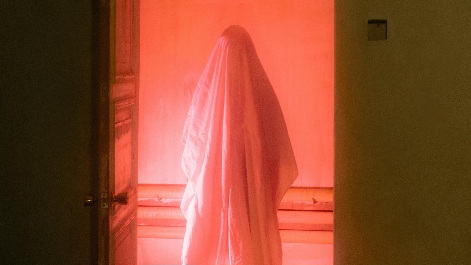You think you’ve seen it all in the dating jungle.
Ghosting? Been there.
Gaslighting? Sadly, not new.
But then—out of the emotional mist—emerges a hybrid beast.
At first, they vanish. You’re left holding unanswered texts, your brain running marathons to figure out why. Weeks later, they resurface like nothing happened, tossing you a casual “Hey, stranger 😉” as if you both didn’t just go through an emotional car crash. And when you dare to bring up the disappearing act? Suddenly, you’re too sensitive, overthinking, or “remembering it wrong.”
Welcome to ghostlighting—the dating trend that’s one part Houdini act, one part psychological warfare. It’s confusing, it’s manipulative, and it’s leaving a growing number of daters questioning their sanity.
Before you panic-scroll your DMs to find potential culprits, let’s unpack exactly what this is, why it’s so damaging, and how to shut it down before it messes with your peace.
What Is Ghostlighting?
Think of ghostlighting as the evil lovechild of two already-awful dating behaviors:
- Ghosting – someone vanishes from your life without explanation. No text. No call. No “Hey, I’m not feeling this anymore.” Just—poof.
- Gaslighting – a manipulation tactic where someone distorts the truth or denies reality, making you doubt your own perception or memory.
Ghostlighting mashes these together into one messy, toxic cocktail.
Here’s how it works:
- They ghost you—completely disappear without a word.
- Then, when they reappear, they deny it happened, downplay it, or make you feel like you’re overreacting.
- They might even flip it on you: “I didn’t ghost you, you were just busy.” or “You’re imagining things—we’ve been fine.”
The real kicker? It’s not always overt cruelty. Sometimes, it’s wrapped in charm or casual friendliness, which makes it even more disorienting. One moment, you’re hurt. The next, you’re wondering if maybe they are right—maybe you did blow it out of proportion.
Why Ghostlighting Hits Harder
Ghosting stings because you’re left with no closure. Gaslighting cuts deep because it makes you question your own reality. But ghostlighting? That’s a double punch to the gut — you get abandoned and manipulated into believing it was somehow your fault.
When someone ghostlights you, they vanish without explanation (ghosting) and later reappear just long enough to rewrite the past (gaslighting). They might claim, “I never disappeared — you’re imagining things,” or “You were being too clingy, that’s why I had to pull away.”
This combination is so damaging because:
- It messes with both your heart and your mind.
Ghosting alone leaves emotional pain, but ghostlighting plants seeds of self-doubt that can spiral into anxiety and mistrust in future relationships. - It distorts your memory of events.
Gaslighting already blurs the truth; paired with the silence of ghosting, it becomes harder to piece together what really happened. - It robs you of closure twice.
First when they disappear, and again when they return with a false narrative that denies your lived experience. - It erodes your ability to trust your instincts.
You may start believing they are right about your “overreaction,” making you ignore your own feelings the next time a red flag pops up.
In short, ghostlighting hits harder because it’s not just emotional neglect or manipulation — it’s both, wrapped up in a cycle that leaves you confused, guilty, and second-guessing yourself long after the person is gone.
Why It’s More Common Now
Ghostlighting thrives in the digital dating era. The rise of:
- Short-term dating apps (where accountability is low)
- Social media “soft fades” (where people don’t block you, just slowly disengage)
- Online personas (where people can present an entirely different reality)
…makes it easier for someone to manipulate the truth, rewrite the narrative, and vanish without consequence.
Signs You’re Being Ghostlighted
Ghostlighting isn’t always obvious—especially when it’s wrapped in charm, “good intentions,” or selective memory. But if you look closely, the patterns are there. Here are the red flags:
1. Inconsistent Vanishing and Reappearance
They disappear without explanation, only to pop back into your life as if nothing happened. When you question it, they either deny it ever happened or spin the story to make you feel unreasonable.
2. Emotional Manipulation
Somehow, you end up feeling like you’re the problem. They twist the situation so you’re apologizing for having needs, emotions, or boundaries—while they take no real accountability.
3. Altered Narrative
They’ll rewrite the past, insisting certain conversations “never happened” or claiming you “misunderstood” what they said. This isn’t just forgetfulness—it’s a deliberate attempt to make you doubt your own memory and feelings.
The scary thing about ghostlighting is how it makes you question yourself more than the other person. If you find yourself constantly confused, apologizing for things you didn’t do, or second-guessing your own reality—it’s time to step back and reassess.
Why Ghostlighting Hurts More Than Just Ghosting or Gaslighting Alone
If you’ve ever been left staring at your phone, re-reading old messages, wondering if you imagined the entire relationship—congratulations (well, not really), you might have been ghostlighted.
Ghostlighting is the emotional equivalent of getting punched twice—once by the cold silence of ghosting and again by the mental confusion of gaslighting. On its own, each is painful. But when combined? It’s a devastating one-two punch that leaves you questioning not just the relationship, but your grip on reality.
Let’s unpack why ghostlighting is particularly damaging—and why it lingers long after the person is gone.
1. Ghosting Hurts, Gaslighting Confuses—Ghostlighting Does Both
Ghosting alone is hurtful because it’s rejection without closure. You’re left in limbo, unsure why the person cut contact. It creates an emotional wound, but you can at least eventually tell yourself: They just didn’t want to continue.
Gaslighting alone is confusing because it messes with your perception of reality. It’s emotional manipulation that makes you second-guess yourself. Over time, it erodes your self-trust.
Ghostlighting combines the worst of both:
- The heartbreak of being abandoned without warning.
- The mental disorientation of being told your feelings, memories, or experiences aren’t real.
It’s not just losing someone—it’s losing faith in your ability to interpret what happened. That’s why the recovery process can be slower and more complicated.
2. It Targets Both the Heart and the Mind
Most breakups affect your emotions. Ghostlighting affects both your emotional and cognitive foundations.
- Emotionally: You feel rejected, discarded, unworthy.
- Mentally: You question whether you misread every signal, making it hard to trust your own instincts in the future.
That combination creates a double injury. You’re grieving the person and grappling with self-doubt. This is why ghostlighting often leaves people stuck in endless overthinking loops: Was I too sensitive? Did I make it all up?
3. It Delays Healing
One of the biggest reasons ghostlighting hits harder is because it interrupts the natural healing process.
When you’ve been ghosted, your mind can—eventually—accept the silence as an answer. When you’ve been gaslighted, you might still have access to the person to call out the lies (even if it’s not productive).
But in ghostlighting, you get both:
- The last conversation(s) you had are distorted by gaslighting.
- Then they vanish, giving you no chance to process or clarify.
It’s like trying to heal a wound that keeps reopening—because every time you try to make sense of what happened, you remember their denials, their contradictions, and the sudden silence.
4. It Weaponizes Ambiguity
The cruel genius of ghostlighting is that it leaves everything open-ended—on purpose.
- You’re not sure if they were serious or joking when they dismissed your concerns.
- You can’t tell if they really didn’t mean what you thought they did.
- You’re unsure if they’re gone for good or just taking a break.
That uncertainty keeps you emotionally tethered to them longer. Instead of moving forward, you stay in a holding pattern, replaying the past like a detective looking for clues.
5. It Creates a Cycle of Self-Blame
People who experience ghostlighting often end up blaming themselves twice:
- For “misreading” the relationship.
- For “overreacting” when they confronted the person—because that’s what the person implied before disappearing.
Even if deep down you know they treated you poorly, those seeds of self-blame can take root. Over time, they can impact not just your dating life, but your friendships, work relationships, and self-image.
Healing From Ghostlighting
The first step toward healing? Call it what it is—manipulation mixed with abandonment. That combination is not a reflection of your worth; it’s a mirror of their emotional immaturity.
Here’s your recovery roadmap:
- Name the behavior. Say it out loud, write it down—ghostlighting is real, and it happened to you. Naming it helps break the spell.
- Drop the self-blame. Their inability to handle emotions or offer closure says everything about them, not you.
- Rebuild self-trust. Start small:
- Journal your experiences to reinforce your version of events.
- Practice self-care that makes you feel grounded and connected to your body.
- Talk to a therapist or trusted friend who validates your reality.
- Engage in relationships (friendships, family, dating) that honor healthy communication.
Healing from ghostlighting isn’t about getting over them—it’s about reclaiming your confidence in you.
Ghostlighting isn’t just a messy breakup style—it’s a neon red flag for deeper emotional unavailability and trust issues. If someone can vanish while distorting your reality, they’re not equipped for the kind of relationship that’s rooted in respect and mutual care.
Here’s the truth:
Healthy love never makes you second-guess your reality.
Healthy love never weaponizes silence.
Healthy love doesn’t disappear when things get complicated.
So, is ghostlighting a deal-breaker? For many, yes—and it should be. But it can also be a wake-up call, pushing you to:
- Prioritize clarity in your connections.
- Demand kindness in your interactions.
- Show that same clarity and kindness to yourself, even when the dating world feels murky.
Because in modern dating, your biggest power move isn’t catching every red flag—it’s walking away from them with your self-respect intact.







.png)
